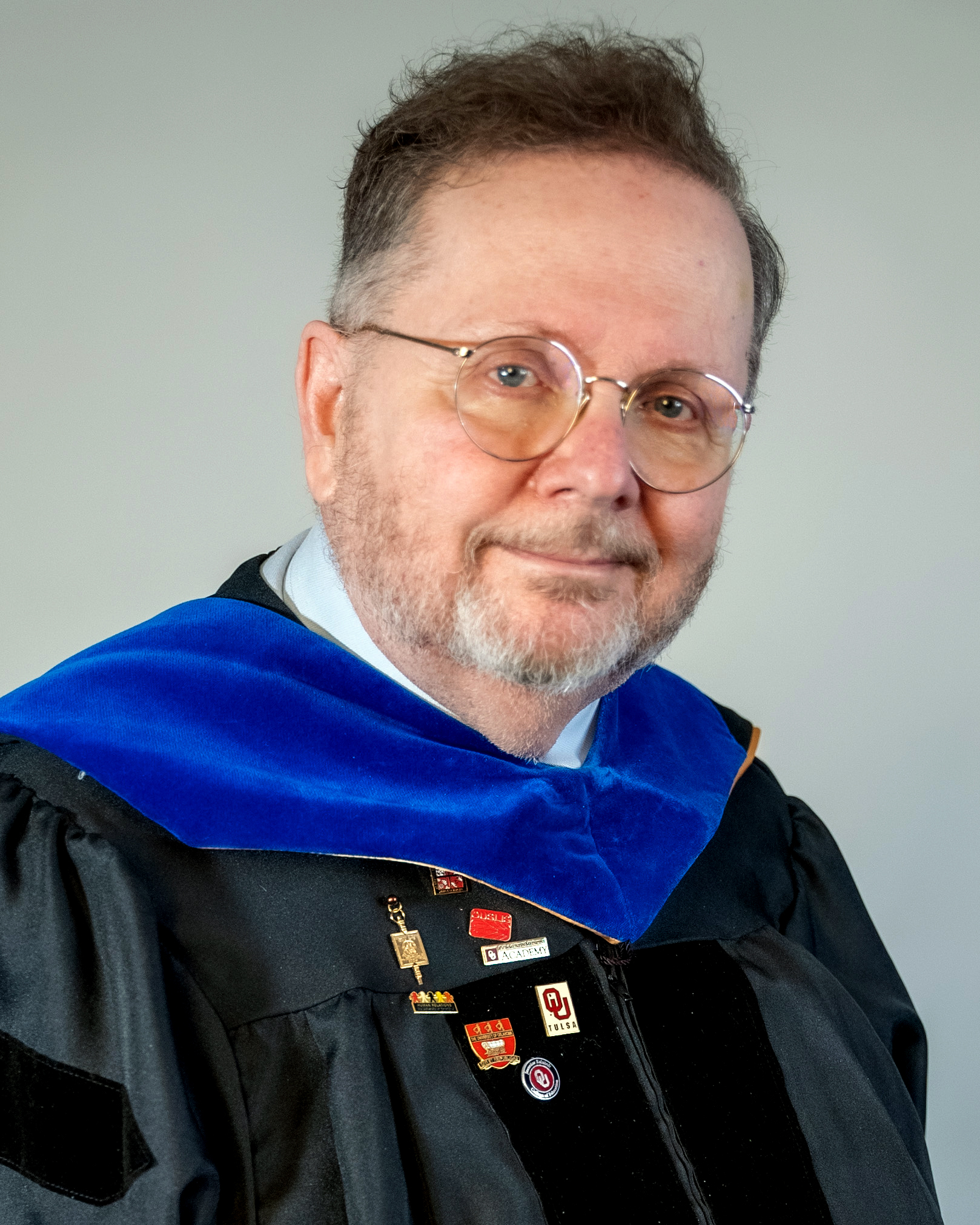Hall of Fame Member Biographies
- Home
- Hall of Fame
- Hall of Fame Member Biographies
- Dr. William Rey

Dr. William Rey
A native Iowan, Dr. William Ray graduated from the University of Iowa in 1972 with a bachelor’s degree in mathematics and economics and a minor in political science. He later earned master’s degrees in both mathematics and statistics, as well as a Ph.D in mathematics, all from that institution. Growing up, he attended the same church as his hometown’s most illustrious native son, Robert Millikin, who used advanced mathematics to measure the charge of the electron, which would win him the Nobel Prize in physics in 1929. In the 1980s, Ray would teach his graduate students these same mathematics, and one of these students later used what he had learned to organize the United States’ mammoth buildup of military equipment prior to the First Gulf War.
Ray spent two years teaching at Iowa State before joining the mathematics faculty at the University of Oklahoma in 1980. He has published over 20 research articles on nonlinear functional analysis as well as a graduate level textbook, “Real Analysis.” In 1986, he became associate chair of the math department and was named assistant dean of the OU Graduate College two years later. He secured funding from the U.S. Department of Education to expand access to post-graduate study at OU, consistently ranking in the top five in national grant competitions. During his tenure, graduate enrollment from underrepresented groups more than doubled.
Ray would also become the founding dean of the OU-Tulsa Graduate College in 1986, a position he held until 2016. In addition to serving as dean, he later served as executive vice president and associate vice provost for the institution. During his tenure at OU-Tulsa, Ray taught research methods for human relations and advanced mathematics for telecommunications engineering. Outside of his official duties, he volunteered with the Tulsa Human Rights Commission, the Mayor’s Committee on Fine Arts, and served as an accreditor for the Higher Learning Commission.
During Ray’s time in Tulsa, the branch campus experienced considerable growth, with faculty numbers increasing sixfold, recurring funding from the State Regents secured, and the creation of two new academic buildings: the Schusterman Learning Center and Library. Ray’s vision helped to frame the organization, structure, and facilities at what eventually became the vibrant institution that is today’s OU-Tulsa, the home to world-class research programs in areas as varied as early childhood education and telecommunications systems.
Though he retired from OU in 2018, Ray has kept busy, working as an accreditor for the Higher Learning Commission and writing novels. His most recent piece of fiction, “Timekeepers,” was released in June 2022. Ray also writes a monthly column for Writing dot com called “For Authors,” where he provides both editorial and stylistic advice. He is currently president of Oklahoma Science Fiction Writers, a local group of Tulsa authors.